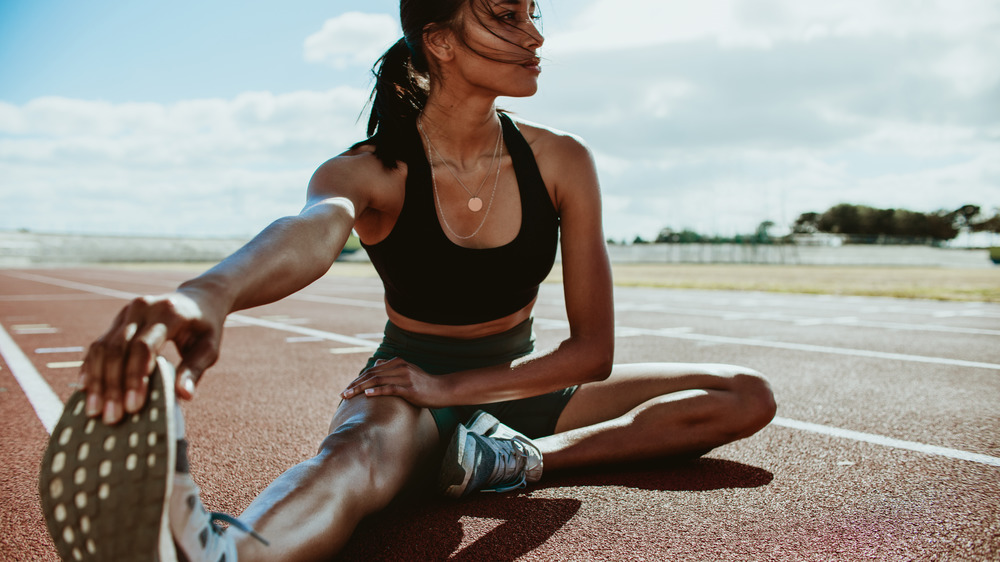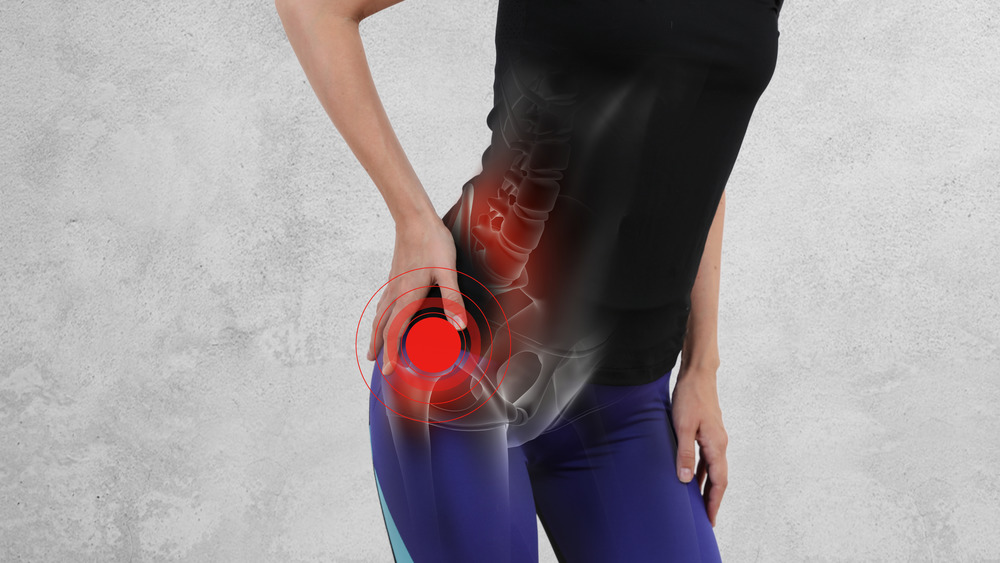Why You Should Never Bounce When You Stretch
Bouncing while you stretch, called ballistic stretching, gained popularity in the 70s and 80s along with the dance cardio workouts. Remember those bodysuits and leggings? If you were doing a standing forward stretch, you'd stretch until you felt your muscles pulling and then continuously bounce further into the stretch. Experts soon realized that type of stretching is no good.
It was thought that bouncing while you stretched gave you a better range of motion, which might be true, but the risks outweigh the benefits. What it will do, is significantly increase your risk of injury to muscles, ligaments, and tendons because of the tension it creates. Always stretch after your workout, but don't stretch cold muscles, and avoid ballistic stretching.
The better choices for stretching are the types that are proven to be safe and effective, like static stretching, dynamic stretching, and prioceptive neuromuscular facilitation (PNF), according to the American College of Sports Medicine and the American Academy of Orthopaedic Surgeons.
Injury risks of bouncing while you stretch
Bouncing while you stretch forces you to exceed your range of motion, which is why it can cause injuries. Relaxing slowly into your stretches and holding them for the proper amount of time has all of the benefits without the risk of injury.
Bouncing while you stretch can strain a muscle, cause a ligament or tendon injury, or even cause a muscle tear. If you've been bouncing while you stretch on a regular basis, you could end up with some serious injuries like inflamed tendons, which could lead to tendonitis and chronic pain. Ballistic stretching can also leave your muscles tighter and less flexible, which is the opposite of what most people want (via Livestrong and Healthline).
Stretching, when done correctly, has many benefits. You'll notice more flexibility and an increase in your range of motion after stretching properly. And you'll also improve your circulation, posture, performance and workout recovery time, and lower your blood pressure, prevent injuries and reduce stress (via Healthline and the Mayo Clinic).

